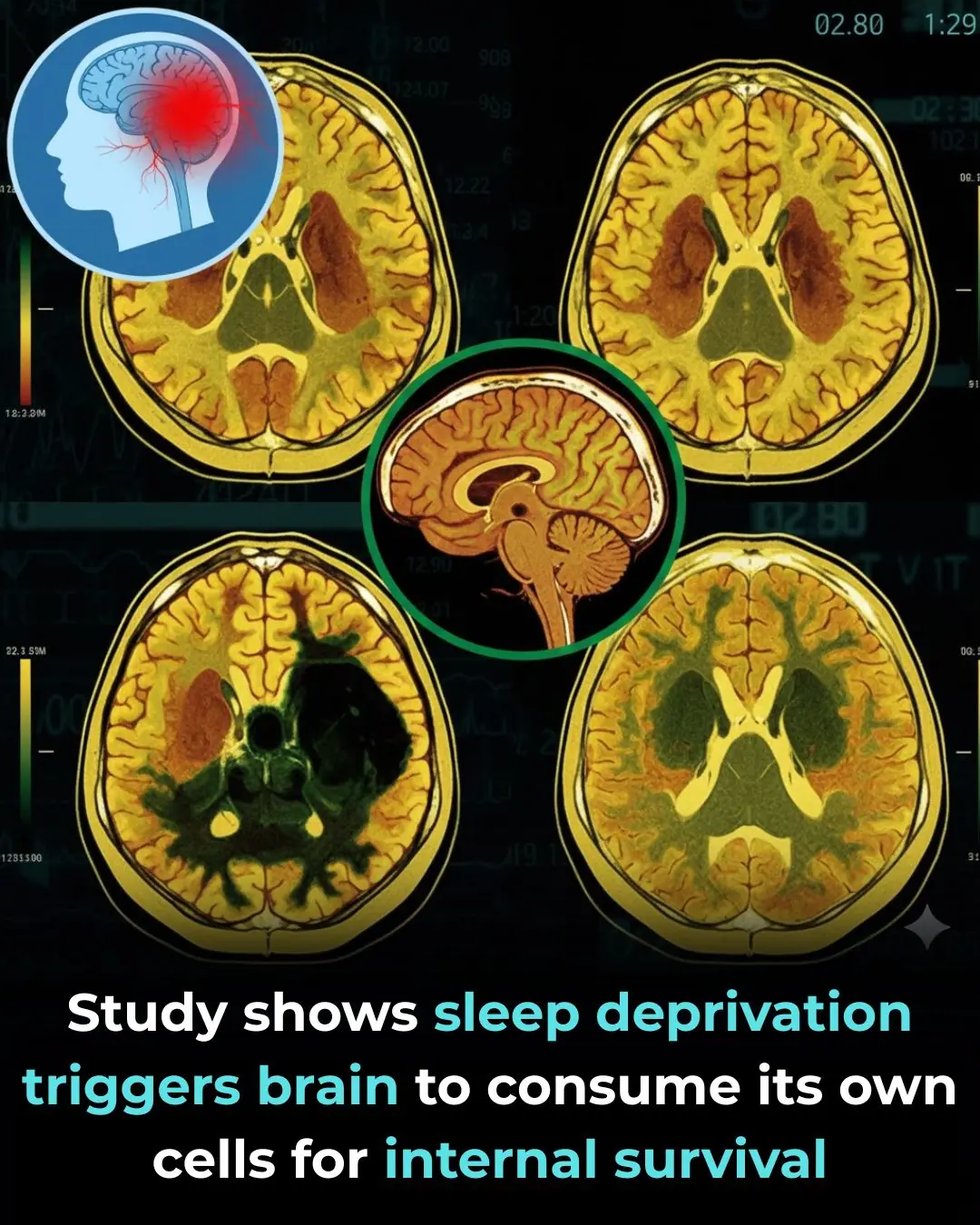
How Rose Essential Oil May Reshape the Brain: A Deep Dive Into a Surprising New Study

A surprising new study has revealed a discovery that could reshape our understanding of how scent interacts with the brain. According to researchers, women who applied rose essential oil to their clothing every day for 30 consecutive days experienced a significant increase in gray matter volume across multiple regions of the brain. This finding goes far beyond traditional uses of essential oils and raises intriguing questions about how aroma, neuroplasticity, and emotional well-being might be connected.
A Simple Daily Habit With Unexpected Results
In this study, participants were instructed to apply a few drops of pure rose essential oil to their clothes each morning. The scent remained close to the body throughout the day, providing continuous olfactory stimulation.
After one month, MRI scans showed measurable growth in gray matter, which is responsible for many of the brain’s most vital functions, including:
-
Memory formation and recall
-
Emotional regulation
-
Decision-making
-
Executive functioning
-
Stress response
-
Attention and cognitive flexibility
Gray matter typically declines with age, chronic stress, lack of mental stimulation, and certain neurological conditions. That makes the study’s results even more remarkable — suggesting that something as natural and accessible as a floral scent may stimulate the brain in meaningful ways.
Why Gray Matter Matters
Gray matter houses billions of neurons and synaptic connections that determine how effectively the brain processes information. When gray matter shrinks, people may experience:
-
Poor memory
-
Difficulty concentrating
-
Mood instability
-
Slower thinking
-
Reduced emotional resilience
Conversely, increases in gray matter are associated with improved cognitive performance, better emotional balance, and enhanced neuroplasticity — the brain’s ability to reorganize and build new pathways.
The fact that rose essential oil could play a role in supporting this process challenges traditional assumptions about how the brain responds to sensory input.
The Olfactory System: A Direct Path to the Brain
Unlike other senses, smell has a direct neurological route to the brain’s limbic system — the region responsible for:
-
Emotions
-
Motivation
-
Long-term memory
-
Stress regulation
Scientists hypothesize that consistent exposure to rose essential oil may intensify activity in these neural pathways, stimulating areas involved in plasticity, repair, and emotional processing. Floral scents, especially rose, are known for their calming and stabilizing effects, which may contribute to long-term neurological benefits when used regularly.
Participants Reported Noticeable Emotional Benefits
Beyond the MRI scans, participants experienced several psychological improvements:
-
Greater sense of calm throughout the day
-
Improved focus and mental clarity
-
More emotional stability
-
Better sleep quality
-
Lower anxiety levels
These self-reported outcomes align with previous aromatherapy research showing that rose essential oil can lower heart rate, reduce cortisol levels, and promote relaxation.
Not Just a Perfume — A Potential Cognitive Tool
Researchers emphasize that this practice is not simply about wearing fragrance. It’s about how scent-based neural stimulation may influence the structure and function of the brain.
If future research confirms these early findings, rose essential oil could become a non-invasive, low-cost therapeutic tool for:
-
Older adults experiencing age-related cognitive decline
-
People with chronic stress
-
Individuals recovering from emotional trauma
-
Anyone seeking natural ways to support mental wellness
A New Frontier for Aromatherapy and Neuroscience
This study opens the door to deeper investigation into how daily scents affect:
-
Neuroplasticity
-
Emotional resilience
-
Memory performance
-
Brain aging
-
Sleep regulation
If something as simple as a consistent natural aroma can shape neural architecture, aromatherapy may evolve from a relaxation technique into a scientifically recognized cognitive intervention.
A Gentle Reminder From Nature
Sometimes, the most powerful forms of healing come from unexpected places — in this case, from a flower. Rose essential oil has long been cherished for its beauty and scent, but this research suggests it may also nourish the mind in profound ways.
While scientists work to uncover the mechanisms behind these changes, the findings offer a hopeful message:
Small, natural habits may have the power to improve the brain from the inside out.
News in the same category


Controversial I'm A Celeb star Ruby Wax's changing face

MAFS UK's Abi issues emotional relationship status update

Ant McPartlin's tattoos explained – from meaningful inking to poignant tribute

When the Brain Eats Itself: The Hidden Damage Caused by Lack of Sleep

Kerry Katona undergoes corrective boob surgery as she gushes over beau Paolo's support

Celebrity MasterChef’s Gaz Choudhry fails to impress Grace Dent and John Torode and is sent home

DANIEL RADCLIFFE SENDS LETTER TO NEXT HARRY POTTER AND RECEIVES AN INCREDIBLY HEARTWARMING REPLY

I’m A Celebrity 2025: What the meaning is behing Shona McGarty’s piercings and tattoos

HOW CANCER CAN CAUSE DYSLEXIA AS MARTIN KEMP OPENS UP ABOUT EXPERIENCE ON I'M A CELEB

BILLY BOB THORNTON REVEALS TRUTH ABOUT INFAMOUS BLOOD VIALS WITH ANGELINA JOLIE

Complaints pour in as I’m A Celebrity viewers fume at Kelly Brook’s comments to Jack Osbourne

Katie Price Reignites Tensions Over Daughter Princess Andre, Urges Teen to “Tell the Truth”

Coronation Street: Megan’s Grooming of Will Deepens as Actress Beth Nixon Reveals Troubled Backstory

Heartfelt meaning behind Jack Osbourne’s smiley face knee tattoos revealed

Gogglebox Star Steve Sheehan Playfully Warned by Wife Sue: “Be Careful on the Train!”

Deal or No Deal Contestant Ush Opens Up About Emotional Journey to Motherhood

I’m A Celebrity 2025: Aitch Handed Crucial Career Warning Ahead of Jungle Debut
News Post

Ariana Grande gives shocking update on music career after ‘Wicked: For Good’

Controversial I'm A Celeb star Ruby Wax's changing face

MAFS UK's Abi issues emotional relationship status update

The “Hand of God” Technique: How a Simple Gesture Brought Humanity Back Into Isolated Hospital Rooms

Ant McPartlin's tattoos explained – from meaningful inking to poignant tribute

When the Brain Begins to Consume Itself: The Hidden Costs of Chronic Sleep Loss

When the Brain Eats Itself: The Hidden Damage Caused by Lack of Sleep

From Self-Marriage to Self-Divorce: Suellen Carey’s Viral Journey of Self-Love

Kerry Katona undergoes corrective boob surgery as she gushes over beau Paolo's support

Celebrity MasterChef’s Gaz Choudhry fails to impress Grace Dent and John Torode and is sent home

DANIEL RADCLIFFE SENDS LETTER TO NEXT HARRY POTTER AND RECEIVES AN INCREDIBLY HEARTWARMING REPLY

The Hidden Years of Postpartum Recovery: How Motherhood Reshapes the Brain

I’m A Celebrity 2025: What the meaning is behing Shona McGarty’s piercings and tattoos

HOW CANCER CAN CAUSE DYSLEXIA AS MARTIN KEMP OPENS UP ABOUT EXPERIENCE ON I'M A CELEB

Unattractive Traits That Can Secretly Ruin a Relationship

Things You Should Never Do to Avoid Lightning Strikes

BILLY BOB THORNTON REVEALS TRUTH ABOUT INFAMOUS BLOOD VIALS WITH ANGELINA JOLIE

Nerve Pain Relief? The Vitamin Deficiency You Never Suspected!
